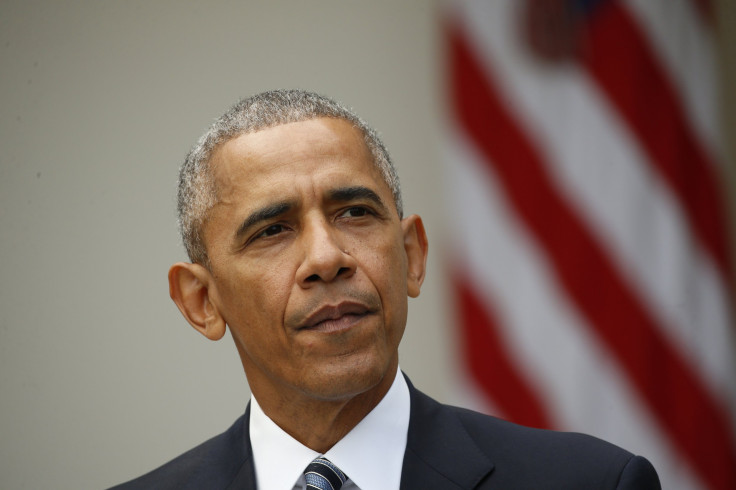Obama Legacy Ruined By Hillary Clinton Loss? 5 Things Trump May Reverse After Coming To Power

Donald Trump will be taking over from Barack Obama as the 45th president of the United States early next year, replacing a number of policies put in place by the current president.
With Democratic nominee Hillary Clinton’s loss in the Nov. 8 election, the public is set to see the end of Obama’s legacy with Trump adopting a radically different approach to many issues of domestic and international importance.
To delve deeper into what policies are at the risk of being axed or overhauled, here is a list of five decisions taken by the Obama administration, which may be overturned by the Republican’s policies:
Obamacare
After years of Republican attempts at repealing the Obama administration’s Affordable Care Act, Trump’s presidency may put the final stop to Obamacare, simply with an executive order.
During an earlier speech in Pennsylvania, a state that voted for Trump, he said, “When we win on Nov. 8 and elect a Republican Congress, we will be able to immediately repeal and replace Obamacare.”
“I will ask Congress to convene a special session so we can repeal and replace, and it will be such an honor for me, for you and for everybody in this country, because Obamacare has to be replaced,” the now President-elect said, “We will do it and we will do it very very quickly.”
Iran nuclear deal
Last year, the Obama administration and five other world powers signed an accord lifting international sanctions on Iran in exchange for guarantees that Tehran would not pursue a nuclear weapons capability.
This move has been termed as “disastrous” by Trump, who says that it would be his “number one priority” to dismantle the agreement. However, Iran’s President Hassan Rouhani said Wednesday that Trump’s election would not change Tehran’s policies and maintained that there was “no possibility” of its nuclear deal being overturned by the U.S. president-elect.
Cuba
Trump has said he will reverse the deal struck by President Barack Obama to reopen diplomatic relations with Cuba and also kickstart some trade with the neighboring country unless Cuba restores political freedoms to its citizens. He has also demanded that Havana free political prisoners.
In the past, the president-elect had supported the reopening of diplomatic relations between the two countries after more than 50 years but changed his position recently, saying the U.S. could have done better than the “one-sided” deal.
“But all of the concessions that Barack Obama has granted the Castro regime were done with executive order, which means the next president can reverse them. And that is what I will do unless the Castro regime meets our demands,” Trump said at a rally in September. “Those demands will include religious and political freedom for the Cuban people and the freeing of political prisoners.”
Paris climate accord
The Republican, in line with his party’s views, has described climate change as a hoax and declared that the U.S. will exit the Paris climate accord if he comes to power. The accord is a historic agreement that aims at controlling the catastrophic rise in global temperatures.
“President Obama entered the United States into the Paris Climate Accords – unilaterally, and without the permission of Congress. This agreement gives foreign bureaucrats control over how much energy we use right here in America,” Trump said during a speech in North Dakota in May. “We’re going to cancel the Paris Climate Agreement and stop all payments of U.S. tax dollars to U.N. global warming programs.”
This move, in turn, could spell doom for the environment.
Mount McKinley
Following President Obama’s decision to change the name of North America’s largest mountain from Mount McKinley to the locally used “Denali,” the president-elect had announced in August that he would reverse the executive order if he was elected.
The mountain was reportedly given its name by a famous gold prospector in 1896, who named it after William McKinley, the 25th president of the U.S., before he was elected. McKinley, however, never stepped into Alaska, reports said.
© Copyright IBTimes 2024. All rights reserved.





















